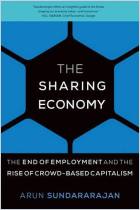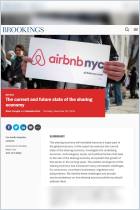
Article
The Sharing Economy Was Always a Scam
‘Sharing’ was supposed to save us. Instead, it became a Trojan horse for a precarious economic future.
Medium,
2019
Recommendation
Adults teach children the virtues of sharing and so, to capitalize on that altruistic notion, proponents touted the rise of the “sharing economy.” Building peer-to-peer transaction platforms enabled companies like Uber and Airbnb to turbocharge a new business paradigm that pundits contended would bring great social and environmental benefits. But that’s not how it's worked out. Instead, as journalist Susie Cagle points out in this insightful critique, investors and the public have come to recognize the serious negative consequences that these enterprises have unleashed.
Summary
About the Author
Susie Cagle is a journalist covering politics and economics.
Learners who read this summary also read
Book


















Comment on this summary or Start Discussion